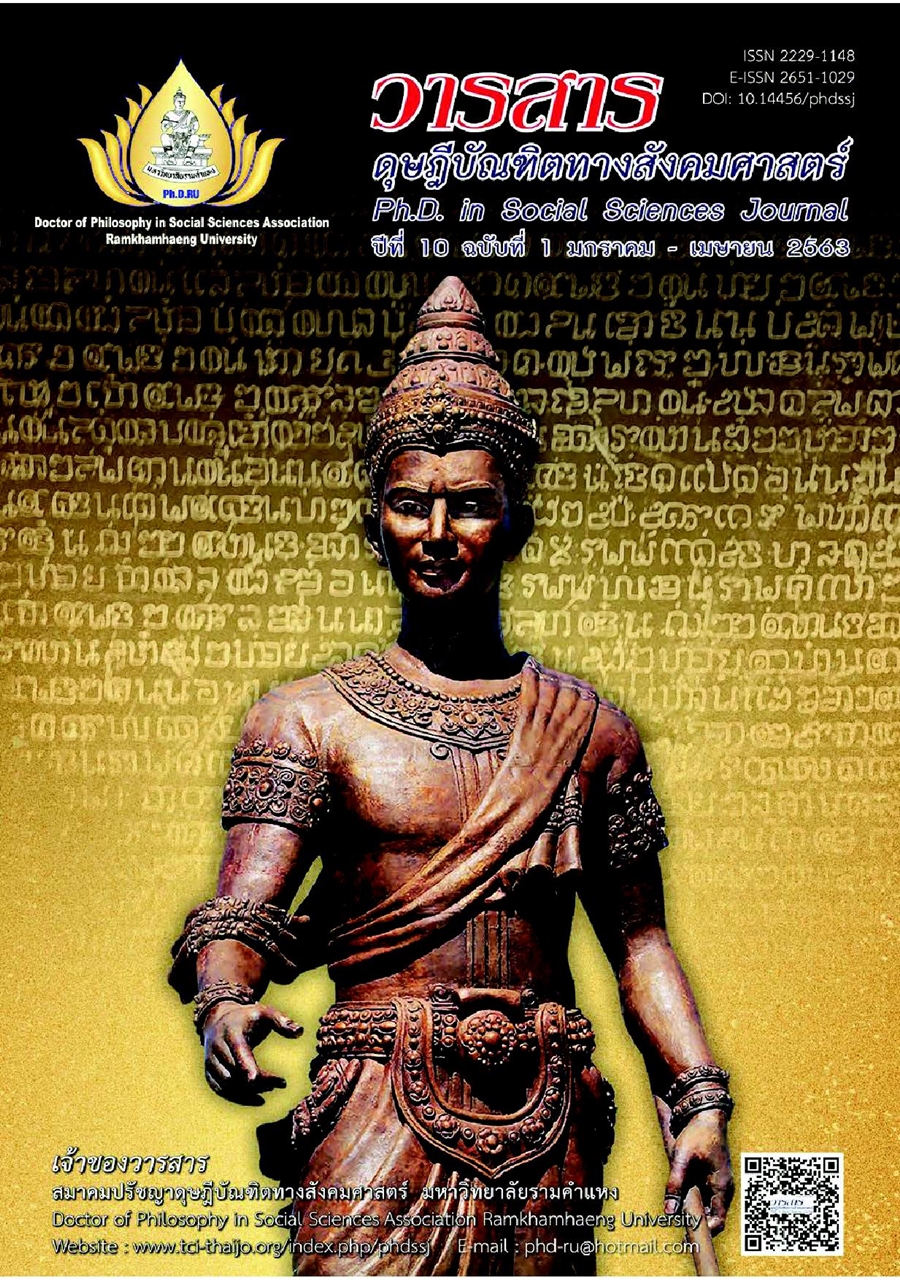Orphan Works
Main Article Content
Abstract
The researcher studies problems and legal opinions concerning orphan works in the jurisdiction of the Kingdom of Thailand (Thailand). The researcher also compares legal measures applied to orphan works in the jurisdiction of Thailand and selected foreign jurisdictions, and the researcher proposes draft legal measures governing orphan works. The researcher used the qualitative research approach by collecting data through documentary research, in-depth interviews. Data were analyzed using content analysis and comparative analysis.
Findings are as follows: The Copyright Act, A.D. (1994) and its recent amendments do not have provisions governing orphan works, thereby limiting the right of accessibility to these works. This is one of the factors leading to copyright infringement in respect to orphan works. The Berne Convention for the Protection of Literary and Artistic Works, the Agreement of Trade-Related Aspects of Intellectual Property Rights and the World International Intellectual Property Organization do not contain provisions governing the problem of orphan works. Thus, the jurisdictions of the United States of America, Canada, Denmark , and Japan have adopted different measures in the present connection. At present, the USA employs a principle of fair use in solving the problem while the draft law has yet to have been enforced. The draft law stipulates that temporary protection be afforded by a court order enjoining an injunction. This approach is incompatible with the approach taken in Thailand. The jurisdictions of the United States of America, Canada, Denmark , and Japan have adopted different measures in the present connection. At present, the USA employs a principle of fair use in solving the problem while the draft law has yet to have been enforced. The draft law stipulates that temporary protection be afforded by a court order enjoining an injunction. This approach is incompatible with the approach taken in Thailand.
Article Details
Academic articles, research articles, and book reviews in the Ph.D. in Social Sciences Journal are author’s opinions, and not the publisher’s, and is not the responsibility of the Ph.D. in Social Sciences Journal Philosophy Association, Ramkhamhaeng University. (In the case that research is done on human, the researcher has to be trained in Ethics for Doing Research on Human Training and has to produce the evidence of the training).
References
Bodenheimer, E. (1981). Jurisprudence: The philosophy and method of the law. Harvard University Press.
Hoffmann, G. M. (2001). Copyright in cyberspace: Questions and answers for librarians. Neal Schuman.
Indananda, N. (1997). Legal problems regarding the exhaustion doctrine of intellectual property rights. Master' thesis of law, Ramkhamhaeng University. [In Thai]
Janwit, P. (2011). Legal analysis on economic principles: Concept and literature review. The Thailand Development Research Institute. [In Thai]
Landes, W. M., & Posner, R. A. (1989). An economic analysis of copyright law. Journal of Legal Studies, 18(2), 325-363.
Price Water House. (2011). An economic analysis of copyright, secondary copyright and collective licensing. Retrieved from https://www.alrc.gov.au/wp-content/uploads/2019/08/766._org__attachment_2_2011_pwc_final_report.pdf
Suphapolsiri, T. (2001). Copyright and Copyright Act A. D. 1994. Nititham. [In Thai]
Tatiana, B. (2014). How to balance interests: Comparative legal aspects on the limitation of copyright in international law. Retrieved from https://dx.doi.org/10.2139/ssrn.2506003
Thanasawat, T. (1999). Licensing of musical work and control of the royalty collecting society according to Copyright Act B. E. 2537. Master' thesis of law, Ramkhamhaeng University. [In Thai]


